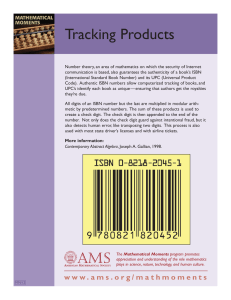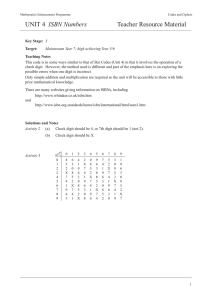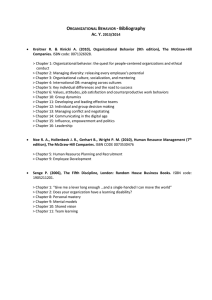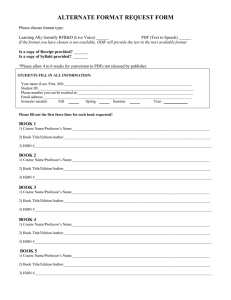C Programming Workshop Assignment: Data Types, ISBN Validation
advertisement
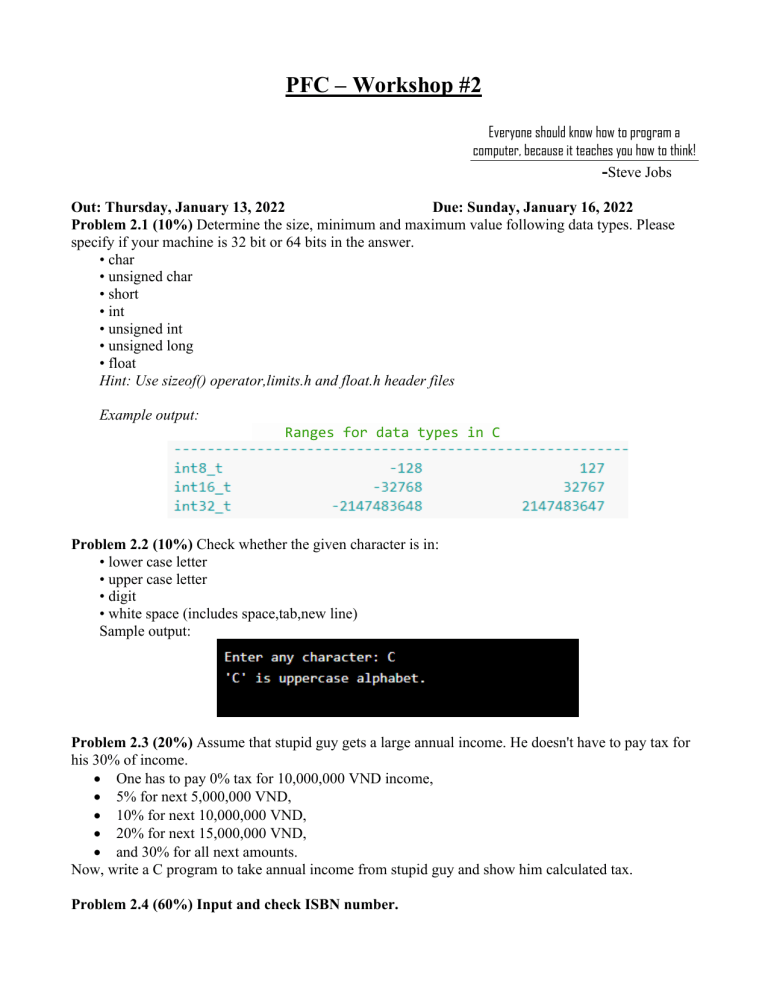
PFC – Workshop #2 Everyone should know how to program a computer, because it teaches you how to think! -Steve Jobs Out: Thursday, January 13, 2022 Due: Sunday, January 16, 2022 Problem 2.1 (10%) Determine the size, minimum and maximum value following data types. Please specify if your machine is 32 bit or 64 bits in the answer. • char • unsigned char • short • int • unsigned int • unsigned long • float Hint: Use sizeof() operator,limits.h and float.h header files Example output: Ranges for data types in C Problem 2.2 (10%) Check whether the given character is in: • lower case letter • upper case letter • digit • white space (includes space,tab,new line) Sample output: Problem 2.3 (20%) Assume that stupid guy gets a large annual income. He doesn't have to pay tax for his 30% of income. • One has to pay 0% tax for 10,000,000 VND income, • 5% for next 5,000,000 VND, • 10% for next 10,000,000 VND, • 20% for next 15,000,000 VND, • and 30% for all next amounts. Now, write a C program to take annual income from stupid guy and show him calculated tax. Problem 2.4 (60%) Input and check ISBN number. ISBN This problem is slightly more difficult than the above problem. This one requires a data type that stores 10 digits. Background Publishers and bookstores use a number system called the International Standard Book Number (ISBN) system to identify books. At the start of publication, each book is assigned a unique ISBN. An ISBN, once assigned, can never be re-used. Click here for detailed information on this numbering system. An ISBN consists of exactly 10 digits. The rightmost digit is the check digit. The check digit is validated modulo 11. • multiply each digit from the first to the ninth by a weight from 10 to 2 respectively (the first digit by 10, the second by 9,.., the ninth by 2). • the sum of the products plus the check digit should be divisible without remainder by 11. • if there is a remainder, the whole number is not a valid ISBN. Consider the following example: ISBN 0003194876 | check digit is 6 add first set of alternates to themselves 0 0 0 3 1 9 4 8 7 10 9 8 7 6 5 4 3 2 0 0 0 21 6 45 16 24 14 = 126 add check digit 6 total 132 divide by 11 12 remainder 0 Therefore this ISBN is valid Specifications Design a program that validates an ISBN. Your program keeps accepting a whole number and determining if that whole number is a valid ISBN. Your program terminates when the user enters 0 as the whole number. The output from your program looks something like: ISBN Validator ============== ISBN (0 to quit): 0003194876 This is a valid ISBN. ISBN (0 to quit): 0003194875 This is not a valid ISBN. ISBN (0 to quit): 0 Have a Nice Day! The data type long only guarantees room for 9 digits. The data type long long guarantees room for an integer with well over 12 digits (at least 64 bits of precision). The conversion specifier for a long long integer is %lld. The Borland 5.5 compiler does not include the long long data type, but instead provides __int64 and %I64d instead of %lld as the conversion specifier. Congratulations, you’re done!
